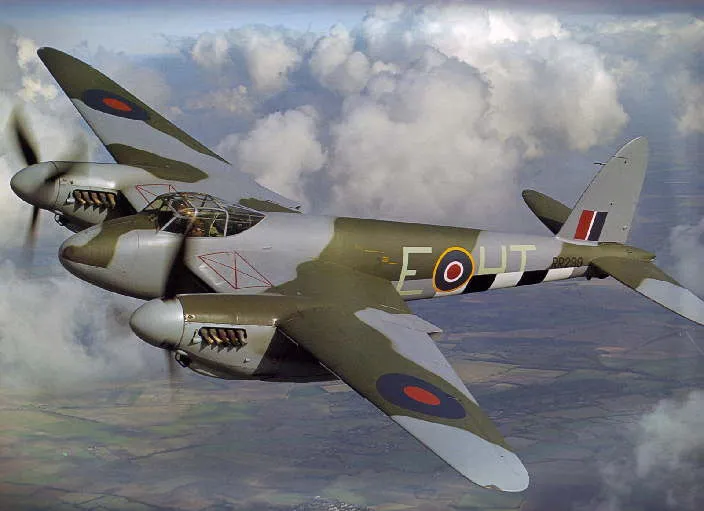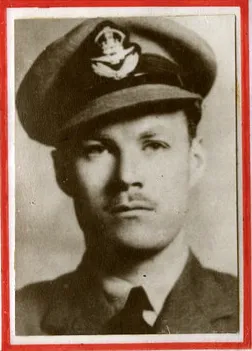Flying Officer TA Gabe (RAFVR) was killed in action
Gabe, Thomas Albert (Flying Officer)
Killed in Action 1942-July-11


Birth Date: unkown date
Born:
Parents:
Spouse:
Home:
Enlistment:
Enlistment Date: unkown date
Service
RAFVR
Unit
105 (B) Sqn- Squadron (RAF)
Fortis in Proeliis Valiant in battles
Base
RAF Horsham St Faith
Rank
Flying Officer
Position
Navigator
Service Numbers
65556
Mission
Mosquito B.Mk. IV DK299
Bombing Flensburg Germany 1942-July-11 to 1942-July-11
105 (B) Sqn (RAF) RAF Horsham St Faith
105 Squadron (Fortis In Proeliis) RAF Horsham. Mosquito B IV DK 299 GB-S aircraft was originally on an operation against U-boat construction yards at Flensburg, Germany. The weather conditions were poor and the crew diverted to a secondary target. Believing they were over Germany, they attacked a train. They were actually over Denmark and shot down by a Bf 109G-1 fighter piloted by Uffz Herbert Biermann of 2/JG 1 that had closed in behind the Mosquito and opened fire. The pilot, Flight Lieutenant Hughes, attempted to crash-land the damaged aircraft south of Rejsby, Denmark but as the Mosquito skidded across the fields at high speed, it crossed over a stream and hit the opposite bank, where it broke up
Pilot Flight Lieutenant GP Hughes MiD (RCAF) and Navigator Flying Officer TA Gabe (RAFVR) were both killed in action
![]() Mosquito IV DK299 [Royal Air Force Serial and Image Database]...
Mosquito IV DK299 [Royal Air Force Serial and Image Database]...
Mosquito serial: DK299

The de Havilland DH.98 Mosquito was a British twin-engine shoulder-winged multi-role combat aircraft, introduced during the Second World War. It was one of few operational front-line aircraft of the era whose frame was constructed almost entirely of wood. Nicknamed The Wooden Wonder, it was affectionately as the "Mossie" to its crews. The total number of DH98 Mosquito aircraft built was 7,781, the type serving with the main Allied air forces, including both the United States and Russia.
When Mosquito production began in 1941 it was the fastest propeller driven operational aircraft in the world. The first variant was an unarmed, high-speed, high-altitude photo-reconnaissance aircraft. Originally conceived as an unarmed fast bomber, the Mosquito's use evolved during the war into many roles including low to medium-altitude daytime tactical bomber, high-altitude night bomber, pathfinder, day or night fighter, fighter-bomber, intruder, and maritime strike aircraft. It was also used by the British Overseas Airways Corporation (BOAC) as a fast transport to carry small high-value cargoes to, and from, neutral countries, through enemy-controlled airspace. The crew of two, pilot and navigator, sat side by side, but a single passenger could ride in the aircraft's bomb bay when necessary.
The Mosquito FB Mk. VI was often flown in special raids, such as Operation Jericho, an attack on Amiens Prison in early 1944, and precision attacks against military intelligence, security and police facilities (such as Gestapo headquarters). On the 10th anniversary of the Nazi' seizure of power in 1943, a morning Mosquito attack knocked out the main Berlin broadcasting station while Hermann Goering was speaking, putting his speech off the air. Goering later said: "It makes me furious when I see the Mosquito. I turn green and yellow with envy. There is nothing the British do not have. They have the geniuses and we have the nincompoops."
The Mosquito flew with the RCAF and other air forces in the European, Mediterranean and Italian theatres. After the end of the Second World War Spartan Air Services flew 10 ex-RAF Mosquitoes, mostly B.35's plus one of only six PR.35's built, for high-altitude photographic survey work in Canada. There are approximately 30 non-flying Mosquitos around the world with five airworthy examples, four in the United States, and one in Canada. Harold Skaarup web page and Wikipedia
![]() BAE Systems (formerly De Havilland)
BAE Systems (formerly De Havilland)

